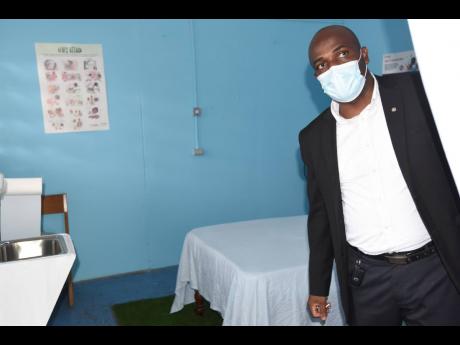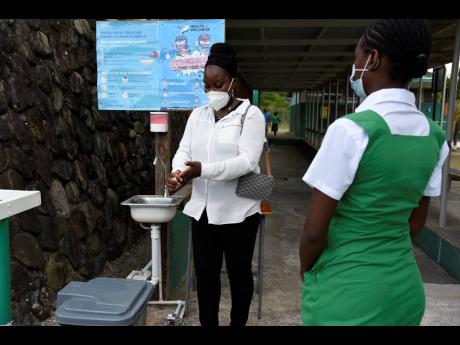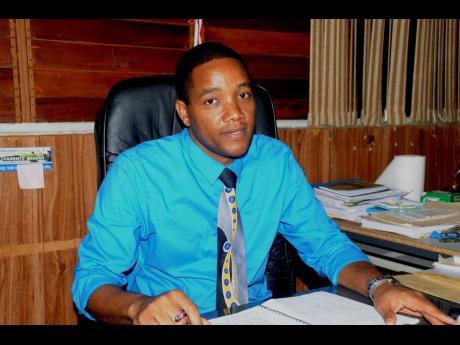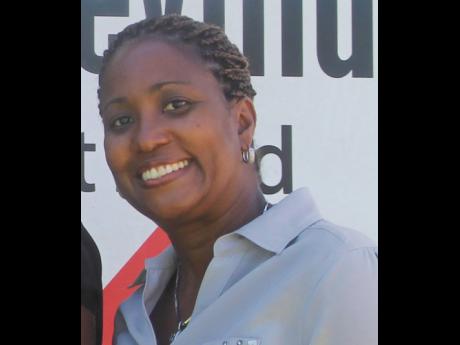Turbulent year for students, learning curve for teachers
Since the COVID-19 pandemic forced the closure of schools a year ago, suddenly thrusting tens of thousands of students and teachers – and even parents – into unfamiliar territory with virtual classrooms, it has been a roller-coaster 12 months, educators agree.
What was initially a two-week closure imposed on March 13 as the coronavirus surfaced locally turned out to be a year-long closure for most educational institutions.
While this method has been successful to some extent, there have been concerns coming from several quarters that many students, primarily those without Internet access and devices, are being left behind.
And although more than 100 schools were given the green light to resume face-to-face classes in January, a spike in COVID-19 cases across the island has forced the majority of those classes back online, with only students sitting exit exams – grades six, 11, 12 and 13 – allowed to attend in-person lessons.
At least 41 schools across Jamaica had reported positive or suspected cases of COVID-19 since reopening in January, with some 47 students reportedly contracting the virus at that time.
President of the Jamaica Independent Schools Association (JISA), Dr Faithlyn Wilson, says it has been a turbulent 12 months for local private schools.
While previously acknowledging that many private institutions were struggling to maintain their finances and keep their operations going, Wilson did not have statistics on hand as to the number of schools which have gone under when she spoke to The Sunday Gleaner.
Efforts to get such data from the registrar of independent schools at the Ministry of Education proved unsuccessful.
Reflecting on the past year, the JISA president said that while the impact on private schools and their cadre of students has been quite negative, there is hope for the sector.
“If I should think of one word, I would think of the word turbulent. It has been quite turbulent, we’re very concerned about our children and the impact this has had on them,” Wilson said.
VACCINE HOPE
“We are waiting to see what it is that will happen in the next few weeks in regard to the vaccination coming in. From what I’ve seen in the media, by June, teachers should be vaccinated. Actually, I think that is the most hopeful bit that is out there right now ... . So we’re hoping to have a more stable new normal come September, and I am speaking to the entire education system and not just the private schools,” she added.
The Government has said that teachers and other persons essential to the operations of schools will be included in the priority category for COVID-19 vaccination.
Wilson said JISA, which represents 150 of the estimated 600 private schools in Jamaica, ranging from kindergarten to tertiary levels, has written to the Government asking for teachers in private institutions to be added to the priority list. She said JISA has been told that this is under consideration.
Despite the well-documented struggles of the past year, there have been some positives, Wilson told The Sunday Gleaner.
MAJOR POSITIVE
“A major positive is the innovation that has happened in education. Innovation has been happening in other industries, but innovation has not been as fast or as extensive in education. So a classroom a hundred years ago looks typically like what a classroom would have looked like pre-COVID, but since COVID, we have had no choice but to innovate in order to continue to serve our children, and I think that is a huge step.
“I think our children, too – and even some of our educators – have developed a resilience that we didn’t know we had, and that is also a positive.”
Wilson called for careful examination of suggestions from some quarters that the academic year be abandoned due to learning loss and students be made to repeat the year.
“I don’t think we can have a broad-brush approach to that. There are some students who have progressed quite effectively with the online programmes that are in place, so I think we would have to have a diagnostic assessment of all our students and decide on those who can progress and those who should be retained for a year,” the JISA president said.
“I think the mastery learning approach is one of the approaches that we have to use, and that approach suggests that it would not serve the best interest of the child if you move the child when prerequisites are not mastered,” she suggested.
Meanwhile, it was a year of ups and downs for public high schools, said Linvern Wright, president of the Jamaica Association of Principals of Secondary Schools (JAPSS).
“It has been a roller-coaster ride, to be honest,” Wright, who is also principal at William Knibb Memorial High School in Trelawny, admitted to The Sunday Gleaner.
“I think a critical thing that we really are having a challenge with is the fact that schools have been the common socialisation factor that we have there for children. We know about the homes failing, we know about many people not going to church again. What has happened is that the school is that institutionalised framework for socialisation in terms of psycho-emotional stability, in terms of giving children respite from the kinds of abuses that many of them would have been facing. That schools have been out, I think that there might be a crisis of psychosocial issues and abuse that I think as a society we’re going to have to work through,” the principal stated.
“In terms of positives, many, many teachers are much better prepared to deliver online instructions in an effective way. They would have been better prepared than they would have been at this time last year. If the provisions are made for computers and tablets, along with reliable connectivity, I think we would be in good stead for online instruction,” he suggested.
He added that principals, too, as a result of workshops that have been done since and in sharing of knowledge with colleagues, are much better able manage schools online.
“I don’t think we are where we ought to be as yet, but I think that many of us are getting there,” said the JAPSS president.
Wright said prior to the pandemic, some principals may have been reluctant to share ideas, but the situation now has forced a change in that attitude.
“The truth is that the knowledge of online instruction/online learning is something that was limited, so I think we have read more, we’ve shared more, and we have participated more in the kinds of workshops that actually opened our minds to how we can do things much better,” he told The Sunday Gleaner.
Both Wright and Wilson agreed that a mix model – a combination of face-to-face instruction and online learning – should be the new norm going forward, even post-pandemic.




